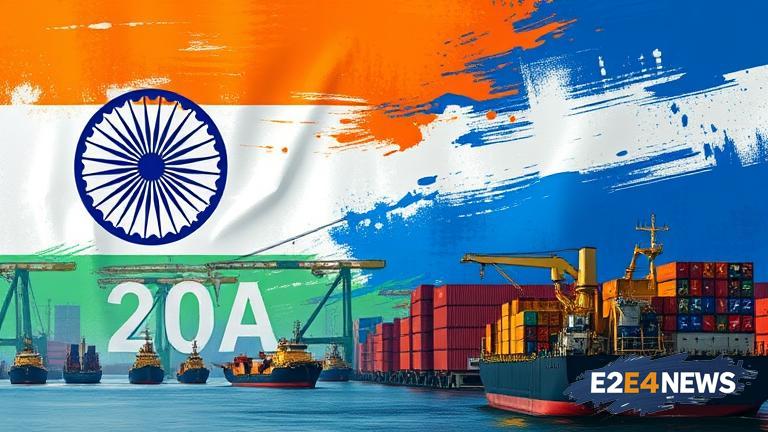India has been at the forefront of a geopolitical tug-of-war between the US and Russia, with the former exerting pressure on the latter to cease its imports of Russian oil. However, India has refused to comply, citing its own energy needs and economic interests. The US has been attempting to isolate Russia economically, imposing sanctions and trade restrictions in response to its actions in Ukraine. Despite these efforts, India has continued to import Russian oil, with the country’s energy minister stating that it will not be swayed by external pressures. The decision has been seen as a significant blow to US efforts to isolate Russia, with India’s imports of Russian oil increasing in recent months. The US has been attempting to persuade India to diversify its energy sources, offering alternatives such as US shale oil. However, India has been hesitant to abandon its Russian oil imports, citing the competitive pricing and reliability of Russian supplies. The Indian government has also been keen to maintain its strategic partnership with Russia, with the two countries cooperating on a range of issues including defense and energy. The US has been critical of India’s decision, with officials stating that it undermines the international community’s efforts to hold Russia accountable for its actions. However, India has argued that its energy needs and economic interests must take precedence, and that it will not be dictated to by external powers. The dispute has highlighted the complexities of global energy politics, with countries increasingly seeking to balance their own interests with geopolitical considerations. The US has been seeking to expand its own energy exports, with India seen as a key market. However, India’s continued imports of Russian oil have dealt a significant blow to these efforts. The Indian government has also been exploring alternative energy sources, including renewable energy and domestic production. However, these efforts are still in their infancy, and the country remains heavily reliant on imported oil. The US has been attempting to offer India alternatives to Russian oil, including US shale oil and liquefied natural gas. However, these alternatives are often more expensive than Russian oil, making them less competitive in the Indian market. The dispute has also highlighted the growing tensions between the US and India, with the two countries increasingly at odds over issues such as trade and energy. Despite these tensions, India has refused to back down, citing its own sovereignty and economic interests. The country’s energy minister has stated that India will continue to import Russian oil, regardless of US pressure. The decision has been seen as a significant test of India’s independence and sovereignty, with the country refusing to be swayed by external pressures. The US has been attempting to persuade other countries to join its efforts to isolate Russia, but India’s refusal to comply has dealt a significant blow to these efforts. The dispute has also highlighted the complexities of global energy politics, with countries increasingly seeking to balance their own interests with geopolitical considerations. The Indian government has also been keen to maintain its strategic partnership with Russia, with the two countries cooperating on a range of issues including defense and energy. The US has been critical of India’s decision, but the country has argued that its energy needs and economic interests must take precedence.





